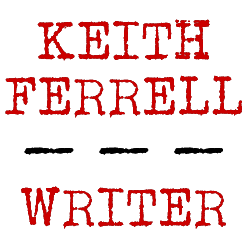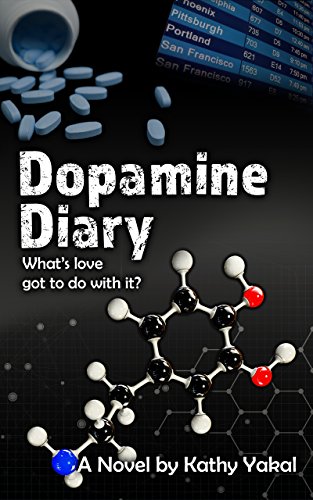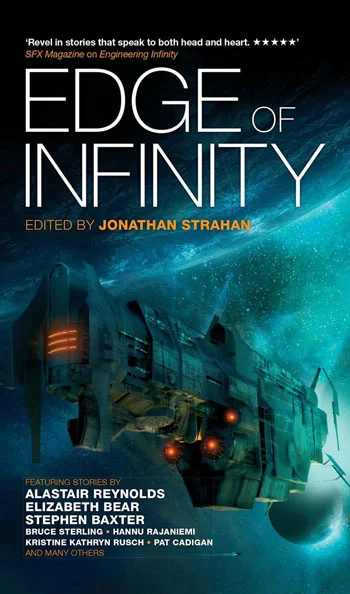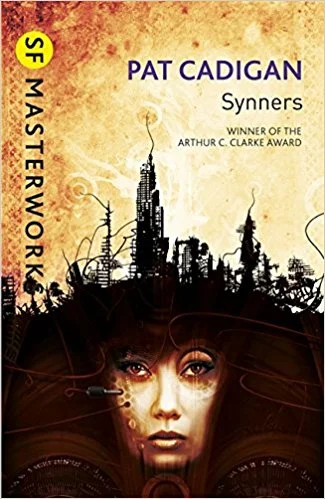Thomas Wolfe wrote more — no surprise there of course — and better about October than anyone.
One passage in particular surfaces with this month every year. Here it is. As we shall see, it is more accurately considered a "scrap" or "extract than a passage:
"All things on earth point home in old October: sailors to sea, travellers to walls and fences, hunters to field and hollow and the long voice of the hounds, the lover to the love he has forsaken."
You can find those words, as many doubtless have today, on most of the "quote sites."
These are sites that, not incidentally, don't cite — none of the quotation aggregators I looked at offered any citation other than Thomas Wolfe's name; nor did any of them indicate or even suggest that that this quotation was not only lifted out of context — they all are, obviously — but also out of a much longer sentence.
To do the citation work the quotation sites are too lazy or sloppy or both to insist upon, the words are from Of Time and the River, published in 1935 as Wolfe's immense second novel. (A variation of the passage appears in Wolfe's short story "No Door," drawn from a draft manuscript for what became Of Time and the River and other books.)
I say published as, because Of Time and the River as published did not reflect Wolfe's intention or, it has been suggested, his actual accomplishment.
Working with Maxwell Perkins, his editor at Scribner's, Wolfe reluctantly in the act and bitterly in retrospect saw his vast scheme for a cycle of novels reduced to his first — Look Homeward, Angel, published six years earlier — and Of Time and the River, which would be presented in print as the sequel to Angel.
But not just the plan for a novel cycle was altered. The editorial process saw the novel's poiont of view shifted from first person to third, and Wolfe's nonlinear approach to time as filtered by memory rebuilt into a straightforward A-B-C chronological structure. Such an approach would have seen Proust's Recherche ending with its narrator retiring to bed following a straightforward lifetime of experiences presented one after another.
Even as published, Of Time and the River is far more than a sequel or continuation if Angel, though how much more it had been before editing is hard, and even heartbreaking, to say.
Look Homeward, Angel had been subjected to similar, though less severe surgery than River experienced. But careful scholarship and hard work on the part of Matthew Bruccoli recreated Wolfe's original of Angel, restoring close to 70, 000 words of text, and shifting, in some places dramatically, the nature of its narrative.
Published in 2000, O Lost, Wolfe's preferred title, the novel gives both the opportunity to experience Wolfe's own novelistic intentions and vision, and also to dispel the widely-held (still!) contention or belief that he was an unconscious, uncontrolled artist, a savant at best, an oaf with pretensions at worst (Ernest Hemingway, ungenerous of other writers in the best of circumstances and moods, called Wolfe the "L'il Abner" of American letters), unpublishable at all without editorial supervision and, yes, intervention, the more Draconian the better.
O Lost shows that even in his twenties Wolfe knew what he was doing, and more importantly for a novelist of such ambition, what he was trying to do.
We do not have, evidently, the same sort of opportunity with Of Time and the River's original manuscript. The great stacks and stretches and packing crate of manuscript that were to have formed other volumes of his original cycle — part of which was called The October Fair — were, after his death in 1938, re-shaped, adapted, even rewritten (and added to) by another editor. The October Fair, for instance, was transmogrified into portions of The Web and the Rock and You Can't Go Home Again, with characters re-made, structure radically altered, new passages actually written by the editor, an editorial approach that was, in the opinion of historian and Wolfe biographer David Herbert Donald, "both from the standpoint of literature and ethics, unacceptable."
So we will likely never know precisely what Wolfe accomplished in the manuscript that became Of Time and the River.
Yet even fashioned — or carved or shaped or hewn: all of these words, and similar others have been used, usually with a hint or outright sniff of derision — into something traditional enough in form to be considered commercially publishable, Of Time and the River remains magnificent. I believe it to be, along with Faulkner's Absalom, Absalom!one of the 1930s' two greatest American novelistic achievements, which to me places it, for all of its flaws as published, among the greatest of all American novels and for that matter not just American.
Wolfe is less well known or read today than his contemporaries Faulkner, Hemingway, or Fitzgerald, though his accomplishment is as large or larger, and his ambition came close to being matched only by Faulkner.
Thomas Wolfe wanted to capture it all — the nature of experience and of the human consciousness which permits and enhances experience both in the fact and in the memory —in a new and original prose, an approach to the nature of the novel that was — or would have been if published — revolutionary and, perhaps ultimately subversive of traditional form and structure. Certainly he was subversive of the severe, but also severely limited, aesthetic that has dominated literature and particularly literary criticism since Henry James. It is an appealing and in many ways admirable aesthetic, one which well-adhered-to can produce great art, but one which only obtains if one is judging (or for that matter writing) fiction created within its admitted constraints.
Bringing that aesthetic to bear upon Wolfe's achievement is to mis-read both his text and his intent, and to do so profoundly. This sort of misreading has beset any number of our greatest novels, from Moby-Dick in advance of Wolfe, to Jones's From Here to Eternity, Nabokov's Ada, Mailer's Ancient Evenings, Pynchon's Gravity's Rainbow, Wallace's Infinite Jest after him. Such books — crossing the seas one could add War and Peace, Tristram Shandy, Ulysses, and Proust's Rechere itself — demand of the reader an abandonment of expectation equal to the writer's abandonment or subversion of forms and formalities that would limit or obviate the vision being captured, the art being created. This is a demand that some readers will accept, critics rarely, and academics almost never.
The editorial, or more accurately, publishing aesthetic — or something — that Maxwell Perkins and, after Wolfe left Scribner's for Harper's (in no small part over the editing of his work), Edward Aswell, committed (sic) against Wolfe's vision was, as Gore Vidal noted, "as if Leaves of Grass had been reshaped by John Greenleaf Whittier."
That sort of reshaping, on a far smaller scale, is what the search engines turn up when their algorithms are charged with finding "Thomas Wolfe + October."
The quote sites' scrap or extract again:
"All things on earth point home in old October: sailors to sea, travellers to walls and fences, hunters to field and hollow and the long voice of the hounds, the lover to the love he has forsaken."
Which words and the cadence in which they are embedded doubtless offer some comfort and reassurance about time and its passage, some pleasant images of the season. Just the sort of thing to fit into a speech or mount on a bulletin board in a classroom or a bordered box at the head of a newsletter. Of course, having found the scrap on a quotation site, the speaker or teacher or newsletter writer will attribute the words to Thomas Wolfe (likely some will make a leap and attribute them to Tom Wolfe) without mentioning Of Time and the River. The scrap will serve its comforting or reassuring purpose.
The actual passage, as it appears in the published novel anyway, places those extracted words precisely where they belong, in the midst of something entirely different. They are a portion of chapter XXXIX, the opening of the novel's "BOOK III: TELEMACHUS." The chapter begins on page 325 (of 912) of my Scribner's edition, a bit more than a third of the way into the novel.
The chapter begins with a traditional, even cliched ("painting the air") invocation of the month and its transitions:
October had come again, and that year it was sharp and soon: burning the thick green on the mountain sides to massed brilliant hues of blazing colors, painting the air with sharpness, sorrow and delight — and with October."
One could be reading Francis Parkinson Keyes or — to draw from Wolfe's native region — Jan Karon.
Within two paragraphs Wolfe makes clear that his protagonist, Eugene Gant, has returned home following the death of his father. The next few pages explore both that death and the month, passages alternating between straightforward and conventional description ("The ripe, the golden month has come again" and "The corn is shocked: it sticks out in hard yellow rows upon dried ears, fit now for great red barns in Pennsylvania, and the big stained teeth of crunching horses" and similar descriptions) and darker streams of death-haunted, father-haunted consciousness. The quotation marks are Wolfe's, indicating that Eugene is thinking and giving voice to his thoughts; the ellipsis is Wolfe's as well:
"October has come again, has come again, has come again...I have come home again and found my father dead...and that was time...time... Where shall I go now? What shall I do? For October has come again, but there has gone some richness from the life we knew, and we are lost."
As the chapter proceeds, the rhythms and the repetitions deepen and darken under Wolfe's hand; the omniscient narrative voice all but vanishes. We hear Eugene Gant speaking his thoughts as he lies in bed in his mother's house. We begin to approach the comforting and reassuring scrap the quote sites offer (it begins the fourth paragraph below).
But now we approach it not via a search engine's guided reductionism and a quotation site's extraction, but via a great artist's guiding hand and eye and mind. Comfort and reassurance are not among the qualities he is guiding us toward as he brings the chapter to its close, and in doing so brilliantly launches the third segment of the novel's long search for the meaning of time and experience and memory, and the consciousness that shapes all three.
There are traditional and conventional October images here — but only if you extract them. In their proper place, they become something else, both counterpoint and commentary, in a passage that is neither traditional nor conventional, any more than was its author, his vision, his intent, and his accomplishment:
Only the darkness moved about him as he lay there thinking, feeling in the darkness: a door creaked softly in the house.
"October is the season for returning: the bowels of youth are yearning with lost love. Their mouths are dry and bitter with desire: their hearts are torn with the thorns of spring. For lovely April, cruel and flowerful, will tear them with sharp joy and wordless lust. Spring has no language but a cry; but crueller than April is the asp of time.
"October is the season for returning: even the town is born anew." he thought. "The tide of life is at the full again, the rich return to business or to fashion, and the bodies of the poor are rescued out of heat and weariness. The ruin and horror of the summer is forgotten — a memory of hot cells and humid walls, a hell of ugly sweat and labor and distress and hopelessness, a limbo of pale greasy faces. Now joy and hope have revived again in the hearts of millions of people, they breathe the air again with hunger, their movements are full of life and energy. The mark of their summer's suffering is still legible upon their flesh, there is something starved and patient in their eyes, and a look that has a child's hope and expectation in it.
"All things on earth point home in old October: sailors to sea, travellers to walls and fences, hunters to field and hollow and the long voice of the hounds, the lover to the love he has forsaken — all things that live upon this earth return: Father, will you not, too, come back again?
"Where are you now, when all things on the earth come back again? For have not all these things been here before, have we not seen them, heard them, known them, and will they not live again for us as they did once, if only you come back again?
"Father, in the night time, in the dark, I have heard the howling of the winds among the great trees, and the sharp and windy raining of the acorns. In the night, in the dark, I have heard the feet of rain upon the roofs, the glut and gurgle of the gutter spouts, and the soaking gulping throat of all the mighty earth, drinking its thirst out in the month of May — and heard the sorrowful silence of the river in October. The hillstreams foam and welter in a steady plunge, the mined clay drops and melts and eddies in the night, the snake coils cool and glistening under dripping ferns, the water roars down past the mill in one sheer sheetlike plunge, making a steady noise like wind, and in the night, in the dark, the river flows by us to the sea.
"The great maw slowly drinks the land as we lie sleeping: the mined banks cave and crumble in the dark, the earth melts and drops into its tide, great horns are baying in the gulph of night, great boats are baying at the river's mouth. Thus, darkened by our dumpings, thickened by our stains, rich, rank, beautiful, and unending as all life, all living, the river, the dark immortal river, full of strange tragic time is flowing by us — by us — by us to the sea.
"All this has been upon the earth, and will abide forever. But you are gone; our live are ruined and broken in the night, our lives are ruined below us by the river, our lives are whirled away into the sea and darkness, and we are lost unless you come to give us life again.
"Come to us, Father, in the watches of the night, come to us as you always came, bringing to us the invincible sustenance of your strength, the limitless treasure of your honesty. the tremendous structure of your life that will shape all lost and broken things on earth again into a golden pattern of exultancy and joy. Come to us, Father, while the winds howl in the darkness, for October has come again bringing with it huge prophecies of death and life and the great cargo of the men who will return. For we are ruined, lost, and broken if you do not come, and our lives, like rotten chips, are whirled about us onward in darkness to the sea."
So, thinking, feeling, speaking, he lay there in his mother's house, but there was nothing in the house but silence, and the moving darkness: storm shook the house and huge winds rushed upon them, and he knew then that his father would not come again, and that all the life that he had known was now lost and broken as a dream.
Thomas Wolfe wrote that.











